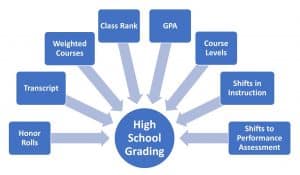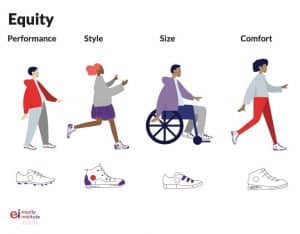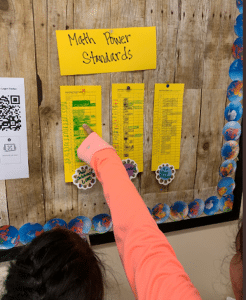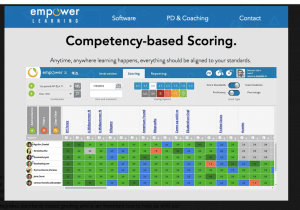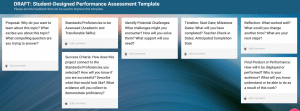Top 10 CompetencyWorks Blog Posts of 2020
CompetencyWorks Blog
For this year-end roundup, a slight variation on the top-ten genre is that it features the most-read CompetencyWorks blog posts by ten different authors. This highlights that CompetencyWorks invites voices from across the field to share their knowledge and perspectives on K-12 competency-based education with both original content and re-posts from other blogs.
Competency-Based Education Across America
Our most-read entry brings together more than 200 blog posts from CompetencyWorks site visits across the country. Readers use these inspiring accounts to inform competency-based systems change in their own schools, districts, and states.
Building Coherent Grading and Reporting Systems in Competency-Based Education
Rose Colby, a consultant and author, writes about establishing a roadmap for competency-based grading and reporting in this three-part series on transforming K-12 assessment systems.
Designing Equitable and Culturally Responsive Learning Spaces
Karla Vigil and Emily Abedon, CEO and consultant for the Equity Institute, discuss culturally responsive teaching, placing student voices and identities at the forefront of our work, and actionable strategies to build an equitable education system.
The Learning Sciences: How the Brain Was Built to Learn
James Neihof, a superintendent in Kentucky (recently retired), shares strategies, resources, and inspiration for increasing student engagement by planning learning experiences based on the learning sciences.
Flexible Pacing: Running The Same Race
Alyson Wright, an elementary school teacher in South Carolina, offers strategies to implement flexible pacing for personalized learning. She dispels the misconception that flexible pacing is every student working independently on different topics, reframing it as the student and teacher working together to determine the appropriate learning schedule and structure.
Opportunities for Personalized Learning in the Pandemic
Ann Hadwen, a curriculum administrator in New Hampshire, describes her district’s early strategies for personalized, competency-based learning during COVID-19 school closures.
Personalized Learning from a Distance: An Early Report from Schools Closed by Coronavirus
Just after a two-week shutdown of the Harrisburg, South Dakota schools at the beginning of the pandemic, I interviewed elementary teacher Tyler Muth, who shares his strategies for maintaining close contacts and providing personalized supports for students learning remotely.
Summative vs. Formative Assessment: From Binary Choice to Continuum
With effective formative assessment, “Teachers and students stop discussing how a task is graded and start discussing what good work looks like.” Don Weafer of the Great Schools Partnership offers strategies for how to get there.
How Standards-Based Grading Led Us to Empower, Part 1: The Tyranny of 82%
Adam Watson, a digital learning coordinator in Kentucky, begins with a parable showing the unfairness and absurdity of traditional grading. Then he explains how standards-based grading is a more consistent, accurate, meaningful, and supportive approach, and the importance of learning management systems in helping teachers put it into practice.
Supporting the Development of Student-Designed Performance Assessments
Pat Fitzsimmons, a team leader at the Vermont Agency of Education, provides examples of student-designed performance assessments and strategies for supporting the design process. This is the final blog post in her four-part series about improving local assessment systems for personalized, proficiency-based learning (which she later developed into a CompetencyWorks report).
Silver Linings: Observations of Self-Directed Behavior in an Online Environment
Self-direction is a key student-success skill that’s paying dividends during COVID-19 school closures, as explored by Jonathan Vander Els, Director of Innovative Projects at the New Hampshire Learning Initiative.
Eliot Levine is the Aurora Institute’s Research Director and leads CompetencyWorks.
